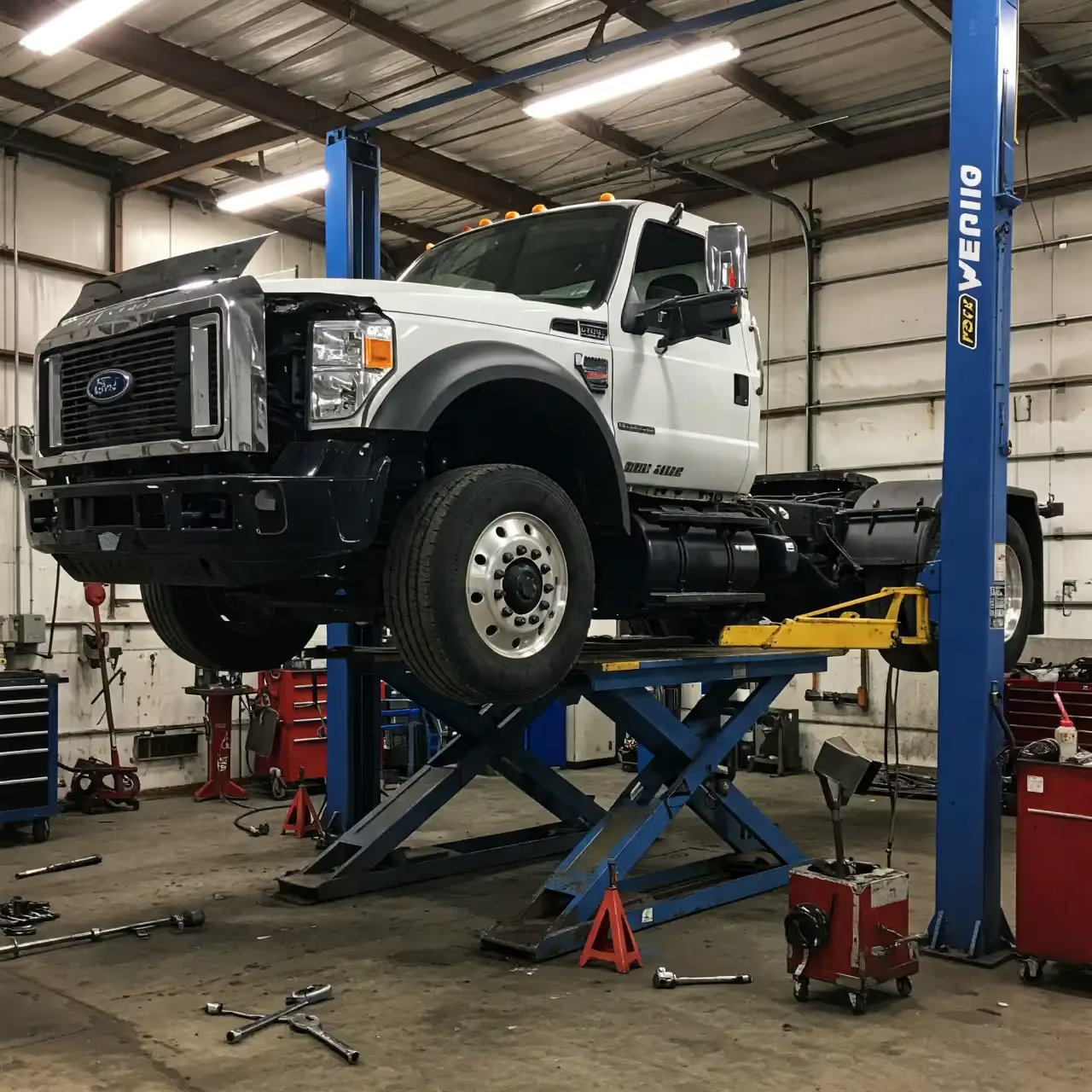How to Extend the Life of a Class 8 Truck with Preventive Repairs
Prevent costly breakdowns and extend the life of your Class 8 truck with expert preventive maintenance strategies tailored for Arizona’s harsh driving conditions.

When it comes to Class 8 trucks, there’s no such thing as overkill with preventive maintenance. They haul the heaviest loads, cover the longest distances, and endure the toughest driving conditions. Want your rig to keep clocking miles without racking up costly downtime?
Let’s dig into how preventive repairs are the secret to keeping your Class 8 in peak condition!
Why Preventive Maintenance Is a No-Brainer
Here’s the deal: reactive repairs cost time and money. And when your truck’s parked, it’s not earning. Preventive maintenance, on the other hand, identifies issues before they snowball into breakdowns. It’s all about staying ahead of the game—inspecting, servicing, and repairing components before they fail.
Critical systems wear faster than you might expect in Arizona’s blazing summer heat and dusty roads. Components like cooling systems, air brakes, and suspension setups need more TLC than trucks cruising mild coastal climates.
Core Components to Watch and Maintain
1. Engine Health: Oil, Filters, and Coolant
Your diesel engine thrives on clean oil and the right viscosity. Old or dirty oil increases friction and heat, breaking down internal parts like bearings and pistons. Set up an interval for regular oil changes, and don’t forget to inspect the oil cooler and filters.
Coolant systems are your best friend in the desert. Make sure the coolant reservoir is topped off, the water pump is belt-tight and leak-free, and the fan clutch operates as it should. A failed cooling system in summer heat is a fast track to a cracked head or warped block.
2. Transmission and Driveline Durability
Manual, automatic, or AMT, your transmission needs regular fluid checks. Gear oil in manuals and transmission fluid in autos should be monitored for contamination, color, and level. Overheating from old fluid leads to costly rebuilds.
Also, inspect your driveshafts and u-joints for play or wear. One loose joint can cascade into driveline misalignment, which can cause a breakdown.
3. Brakes: More Than Just Stopping Power
Heavy-duty trucks rely on air brake systems, which means monitoring your air compressor, dryer, and service chambers. Moisture in your lines can freeze or corrode fittings, especially in fluctuating Arizona weather. Check for leaks, test the air pressure, and adjust slack adjusters as brake shoes wear down.
Also, keep a close eye on brake drums and shoes—if you hear metal-on-metal, seek out professional help immediately!
4. Suspension: Load Balance and Ride Quality
Whether you're running leaf springs or air suspension, each system supports thousands of pounds of weight every trip. Cracked leaf springs or airbag leaks compromise handling, balance, and safety. Regularly inspect for rust, cracks, and pressure loss.
Shock absorbers are also vital—they control rebound and reduce stress on the frame.
5. Tires and Alignment
It’s easy to overlook tires until one blows at 70 mph. However, tread depth, pressure, and alignment have huge implications on fuel economy and safety. Uneven wear often signals suspension or alignment issues.
Rotate tires and check inflation regularly. Arizona roads and temperature swings can spike tire pressure and cause uneven expansion, which is wear you don’t want.
6. Electrical and Battery Systems
Battery voltage drops in extreme heat. Alternators must consistently charge to power ECMs, sensors, and starters. Keep cables tight, terminals clean, and test your battery’s charge before it gets sluggish.
7. Aftertreatment System Awareness
Your DPF, EGR, and DEF systems are vital, not just for emissions, but for performance. Monitor your DPF for regen frequency, clean the EGR cooler as needed, and make sure DEF fluid is topped off. These components are prone to clogging if ignored and expensive to replace.
Build a Preventive Maintenance Schedule That Works
Preventive maintenance isn’t just about checking off boxes. It’s about tailoring a schedule to how your truck is used.
Here’s a rough framework:
- Weekly: Check tires, fluid levels, lights, and brake pressure.
- Monthly: Inspect suspension, belts, hoses, and batteries.
- Quarterly: Change oil, filters, and test air systems.
- Annually: Full inspection—ECM diagnostics, emissions systems, drivetrain alignment.
Log services using fleet management software or a simple spreadsheet. This will keep you accountable and protect resale value.
Preventive Repairs in Arizona: Special Considerations
In a hot and dry region like Benson, AZ, dust and heat are constant threats. Filters clog faster, coolant evaporates quicker, and rubber components crack. Incorporate more frequent air filter changes and check rubber lines, belts, and hoses for dry rot.
And don’t underestimate the power of a visual inspection. Spotting a loose clamp, a fluid drip, or a bulging hose early could save you from being stranded under the Arizona sun.
Pro Tips from the Field
Listen to your truck. Strange sounds, rough idling, or drops in fuel economy often indicate bigger problems.
Train your drivers: The people behind the wheel are the first line of defense. If they know what to look for, you’ll catch issues sooner.
Don’t skimp on parts: Cheaper isn't always better. Use OE or reputable aftermarket parts for critical systems.
Conclusion
Preventive repairs are your Class 8 truck’s insurance policy against the inevitable wear and tear of the road. In tough environments like southern Arizona, staying ahead with scheduled inspections and proactive repairs isn’t optional—it’s essential. From engine health to air brakes and driveline checks, every small step adds miles to your truck’s life.
More Articles
Contact Elite Sales & Service
Elite Sales & Service provides professional mobile truck repair & fleet services in Benson, Arizona & a 150 mobile service radius. Contact us today with any questions, to request a quote, and to schedule service.
.webp)
.webp)
.avif)